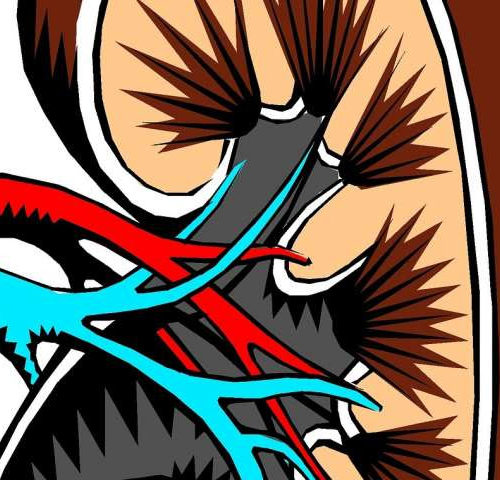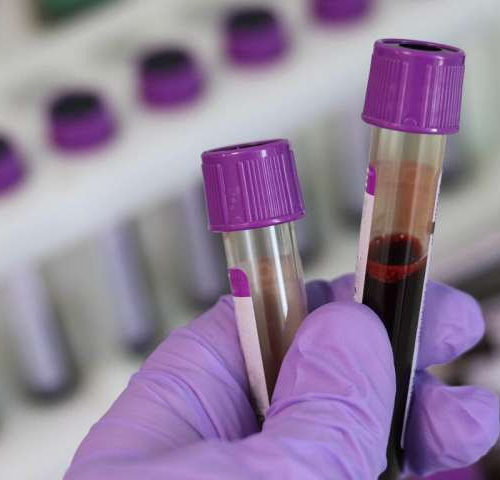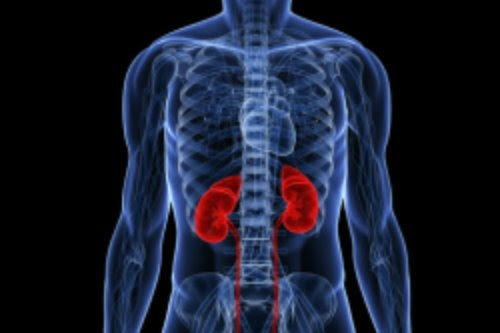TOPLINE: Optimal management of blood pressure, A1c levels, low-density lipoprotein cholesterol (LDL-C), albuminuria, smoking, and physical activity may reduce the excess risk for chronic kidney disease (CKD) typically linked to obesity. The protective effect is more pronounced in men, in those with lower healthy food scores, and in users of diabetes medication. METHODOLOGY: TAKEAWAY: IN...
Tag: <span>chronic kidney disease (CKD)</span>
Empagliflozin offers lasting cardiorenal benefit in CKD patients
by Elana Gotkine Empagliflozin continues to offer cardiorenal benefits for up to 12 months after discontinuation among patients with chronic kidney disease at risk for progression, according to a study published online Oct. 25 in the New England Journal of Medicine to coincide with Kidney Week, the annual meeting of the American Society of Nephrology, held from...
Death risk highest for people with newly diagnosed Type 2 diabetes who get heart failure
Circulation: Cardiovascular quality and outcomes journal report AMERICAN HEART ASSOCIATION DALLAS, June 23, 2020 — Heart failure posed the greatest 5-year risk of death for people newly diagnosed with Type 2 diabetes than any other heart or kidney diseases, according to new research published today in Circulation: Cardiovascular Quality and Outcomes, an American Heart Association...
Blocking brain signals detected in the kidney could help unlock future treatments for kidney failure
by University of Bristol Scientists have discovered an important cell signaling pathway in the kidney which if stopped, could hold the key to treating chronic kidney disease as well as other deadly conditions, including heart attack and stroke. The pathway was already known to exist in the brain, where it helps to maintain the body’s...
Diabetes study finds new treatment target to prevent chronic kidney disease
by Alistair Berry, University of Lincoln New work by a leading team of diabetes researchers has discovered how to target a problematic protein to help prevent kidney damage and significantly slow disease progression. The findings from the University of Lincoln, which could have major implications for diabetessufferers around the world, come as we mark Diabetes...
ACR releases gout management guideline
by American College of Rheumatology Today, the American College of Rheumatology (ACR) released the 2020 Guideline for the Management of Gout. The updated guideline reflects new clinical evidence that became available since the ACR last released a treatment guideline for the condition in 2012, Among the 42 recommendations offered, addressing standard treat-to-target urate lowering therapy...
UK-wide trial testing whether ‘less medicine’ may be just as effective for some patients with advanced chronic kidney disease
A new UK-wide clinical trial is looking to recruit around 500 patients aged over 65-years with low kidney function and other health problems to better understand the pros and cons of different options should their kidneys fail. The study is announced on World Kidney Day. Current evidence around treatment options for patients with the advanced...
Atrasentan tied to lower risk for kidney events in T2DM with CKD
(HealthDay)—Atrasentan is associated with a reduced risk for renal events in patients with type 2 diabetes and chronic kidney disease, according to a study published online April 14 in The Lancet to coincide with the International Society of Nephrology World Congress of Nephrology, held from April 12 to 15 in Melbourne, Australia. Hiddo J.L. Heerspink, Ph.D., from the University of Groningen in the Netherlands,...
Kidney disease triggers cognitive impairment, even in early stages
ERA-EDTA The link between brain dysfunction and advanced kidney disease was first noted in 1930, so it is not a new finding. Experts spoke of ‘dialysis dementia’ or ‘uremic encephalopathy’. What is new, however, is the finding that mild cognitive impairment (MCI) may already be present in earlier stages of CKD, affecting approximately one in two CKD patients (prevalence varies in studies between...
Researchers discover kidney disease gene affects more populations than previously thought
Until now, studies on the APOL1 gene have primarily focused on African and African American populations THE MOUNT SINAI HOSPITAL / MOUNT SINAI SCHOOL OF MEDICINE New York, NY (December 27, 2018) — In the largest population genomics investigation to date, a team of researchers at the Icahn School of Medicine at Mount Sinai, Stanford University, and the...
- 1
- 2



